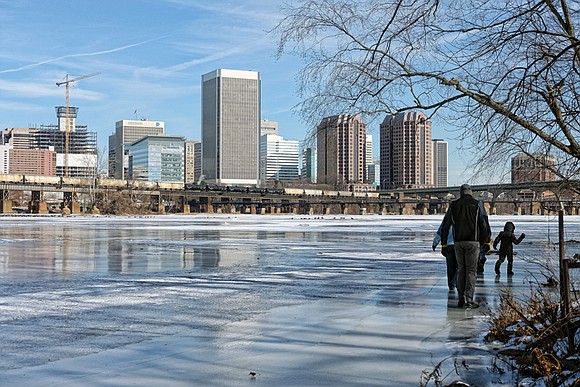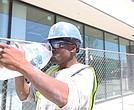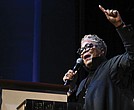Getting homes winter-ready
Free Press staff report | 11/30/2023, 6 p.m.
With El Niño returning for the first time in four years, Virginia could be in for a cold, snowy winter.
Chill. Help is on the way.
The Insurance Institute for Business and Home Safety encourages homeowners to assess their homes’ winter exposure and prepare for before and after winter storms.
Because many older homes are more susceptible to freezing temperatures, be sure to insulate pipes near exterior walls and in hard-to-reach places like attics and crawl spaces.
The IIBHS also suggests preventive maintenance for home heating systems.
To keep homes cozy, caulk and seal the exterior around windows and doors, and add weatherstripping as needed.
Also, ensure chimneys, fireplaces and woodstoves are cleaned yearly and in good condition to prevent fires and carbon monoxide buildup indoors.
When leaving home, even for a few days, keep the heat on and over 60 degrees, said Laurie Gannon, vice president of claims for Virginia Farm Bureau Mutual Insurance Co.
“Around Christmas 2022, some of Virginia had bitterly cold temperatures,” Ms. Gannon said. “Many people were traveling, and they turned down their thermostats to save on heating costs. Because there wasn’t sufficient heat in the structure combined with the cold, their pipes burst. Imagine returning home from a holiday trip and finding your home underwater!”
To avoid similar scenarios consider this advice:
• Outside the home, check your roof and replace loose, damaged or missing shingles. Fix any gaps or broken seals around vents, chimneys and roof corners. Avoid roof leaks and ice dams by clearing debris from gutters and drains.
• Trim tree branches near or overhanging your house to prevent damage to the roof, siding and windows. Shut down sprinkler systems and drain outdoor faucets, irrigation systems and hoses.
• Take an inventory of your home, review your insurance policy and know what is covered, Ms. Gannon said.
• Monitor weather alerts and plan accordingly. An alternate heating source like a generator is recommended for possible power outages, along with an emergency kit with water, nonperishable food and other supplies.
For more winter preparation tips, check out the IIBHS’s Winter Ready Home Checklist at bit.ly/3SpDqCT.







